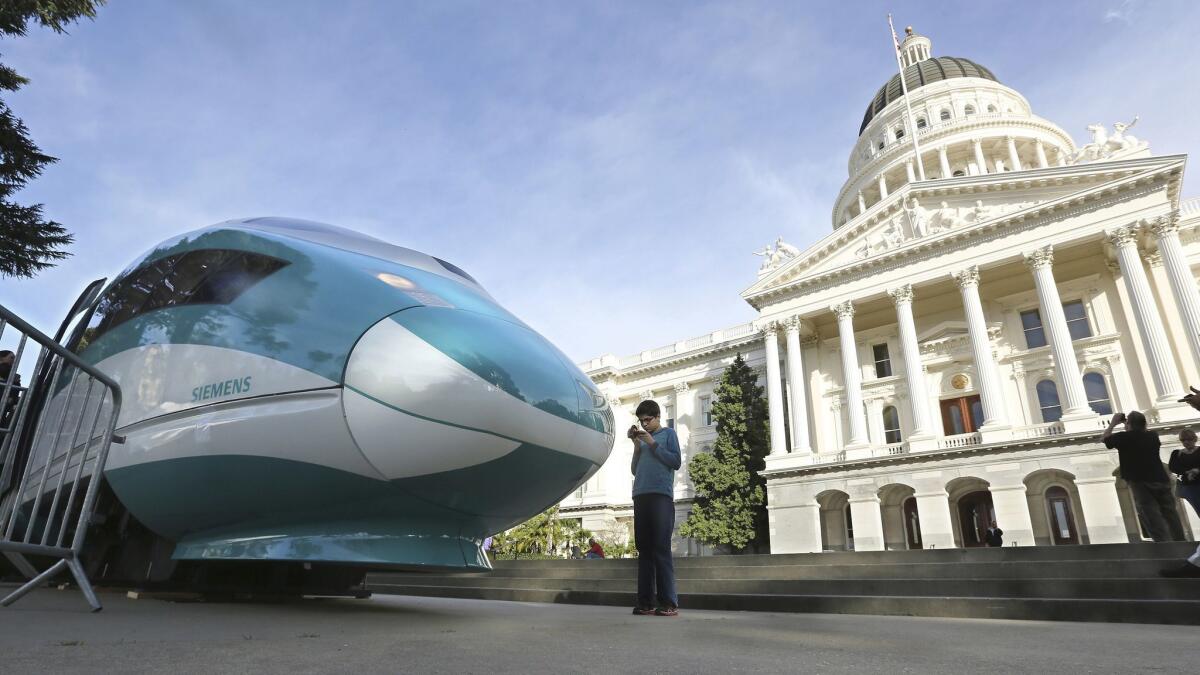Audit of California high-speed rail finds inadequate federal oversight

- Share via
Federal regulators were not aggressive enough in reacting to the California bullet train’s problems since 2009 while overseeing a $2.5-billion grant to the troubled project, a federal audit released Friday found.
The review by the U.S. Department of Transportation inspector general said the Federal Railroad Administration did not adequately oversee the grant to reduce financial risks in the largest and most complex grant in its history.
As a result, “the California High-Speed Rail Authority is at increased risk of not achieving the purpose of the agreements,” it said.
The Trump administration has threatened to claw back the grant money, asserting that the project has violated the terms of the grant. In February 2018, it terminated a second grant for $927 million on the same basis, an action that is now in legal dispute.
The California project received more than a third of federal spending for high-speed rail projects across the country and as it went over budget and fell behind schedule the Federal Railroad Administration missed opportunities to document and react to the growing problems, the audit found.
“FRA provided technical assistance to [the high-speed rail project] to improve future submissions but, prior to May 2019, did not make decisions on whether to take additional actions — such as withholding funds — to address CHSRA’s consistent failure to meet grant requirements.”
The audit backs up Trump administration assertions that the state did not meet the grant terms, but also faults the federal regulators for not doing its part.
The audit, for example, examined 30 random requests for reimbursement from the grant by the rail authority and found 18 of the requests had deficiencies, including one payment request that did not include documentation for $8.28 million out of $8.32 million.
The audit also asserts that California never provided an acceptable plan by 2016 for an alternate use of the Central Valley construction if it could not complete the entire Los Angeles to San Francisco system. The state has long asserted that the Central Valley track would have “independent utility” if the project fails completion or is indefinitely delayed.
In a statement, rail authority Chief Executive Brian Kelly said the audit raised concerns similar to what the state has made in the past, involving communications on federal expectations, requirements and standards.
Kelly added, however, that it would respond to inaccuracies in the audit. The audit asserted that the state has matched only $476 million of the $2.5-billion grant, but Kelly said the state has submitted $1.3 billion. The difference apparently results from federal regulators refusing to accept some of the state’s documentation of the matching spending.
The FRA also took exception to the audit findings.
“The draft report does not accurately reflect FRA’s actions related to the two California cooperative agreements or FRA’s grant oversight program more broadly,” said agency chief Ronald Batory, who cited a half-dozen alleged problems with the audit.
More to Read
Sign up for Essential California
The most important California stories and recommendations in your inbox every morning.
You may occasionally receive promotional content from the Los Angeles Times.











